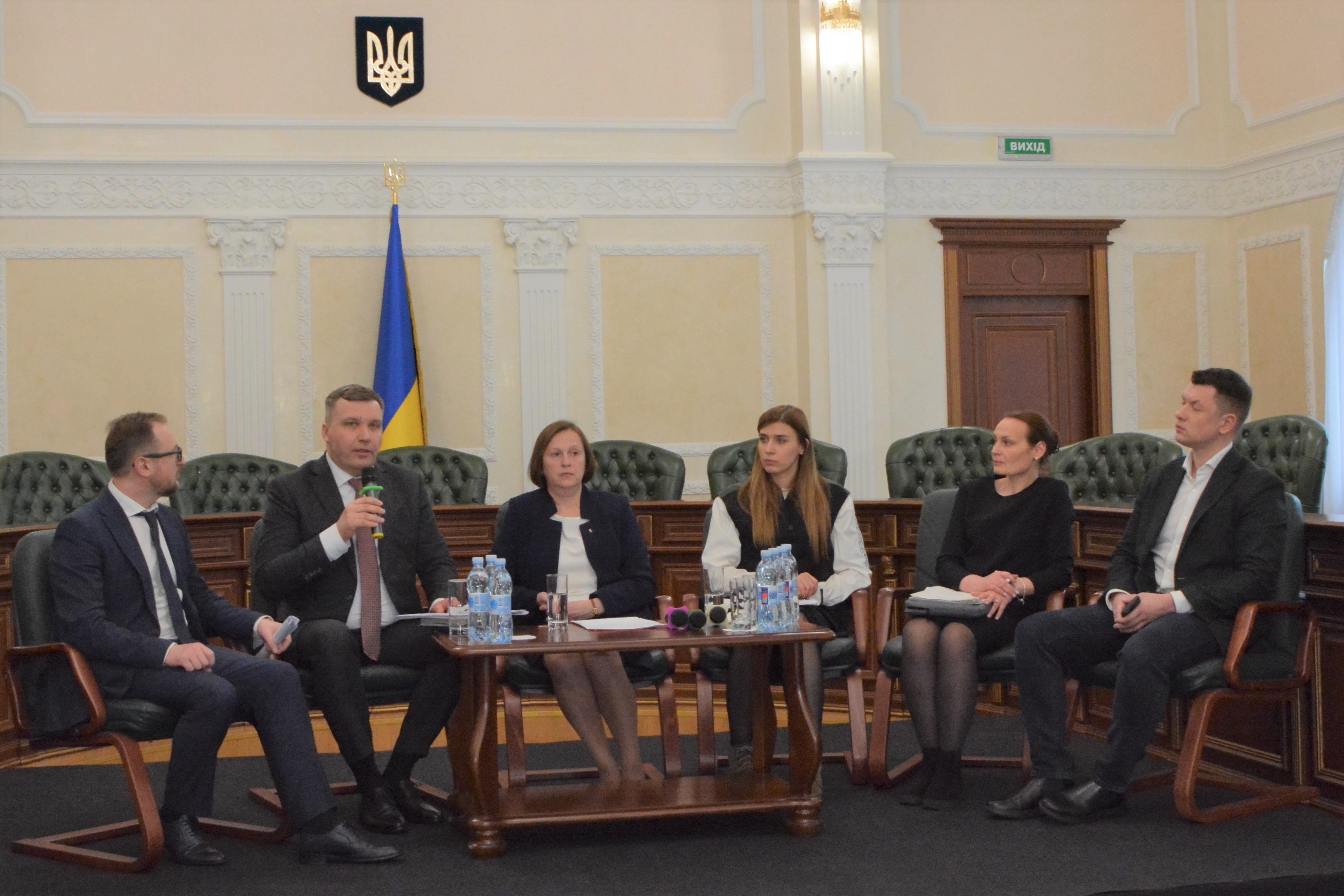Contact center of the Ukrainian Judiciary 044 207-35-46
ABOUT THE SUPREME COURT
FOR CITIZENS
ACTIVITY
PRESS-CENTER

Resolving the creation of a new court map should be prioritized. This will be a significant achievement that will help overcome the most serious challenges related to the lack of human resources in the judiciary, the excessive workload of judges and the need to ensure access to justice for citizens.
This was emphasized by Stanislav Kravchenko, President of the Supreme Court, during the event "Discussions on new challenges for the judiciary: building institutional capacity in the context of war and post-war period" organized by the High Council of Justice.
Back in July 2020, the Verkhovna Rada of Ukraine adopted a resolution approving the new administrative and territorial structure of Ukraine, which resulted in the consolidation of districts. Most government agencies, including pre-trial investigation bodies, have now adapted their structures to the new administrative and territorial structure. Meanwhile, the optimization of the court network has been postponed.
"This issue is very relevant now because it affects the ability to ensure the proper functioning of the judicial system. The consolidation of courts can partially solve the problem of the shortage of judges. We should understand that, unfortunately, this issue will not be resolved in the near future solely by the selection of judges to fill vacancies," the SC President noted.

During the panel discussion on disciplinary liability of judges and prosecutors, Vitalii Urkevych, Secretary of the Grand Chamber of the Supreme Court, spoke about the main aspects of the case law on appeals against decisions of the High Council of Justice and related issues.
According to the speaker, it is the Grand Chamber of the Supreme Court that makes the final decision in a disciplinary case against a particular judge, and today the number of complaints against decisions of the HCJ has increased significantly compared to the previous two years.
Vitalii Urkevych also spoke about the criteria developed by the Grand Chamber of the Supreme Court to determine the legitimacy of decisions made by the disciplinary body in regards to holding a judge accountable. In particular, they concern whether the judge's conduct shows signs of a disciplinary violation and whether the disciplinary sanction imposed is appropriate.
In addition, the Secretary of the Grand Chamber of the Supreme Court focused on the problems related to the review of appeals against decisions of the HCJ in disciplinary cases. These include whether the HCJ can introduce new evidence or investigate new circumstances when considering an appeal against a decision made by its Disciplinary Chamber. Another issue is the proportionality of the imposed penalty.
In conclusion, Vitalii Urkevych noted that both the Grand Chamber of the Supreme Court and the High Council of Justice have already developed well-established approaches to the disciplinary responsibility of judges, so, in his opinion, it is important that the future service of disciplinary inspectors of the HCJ be guided by these developments.